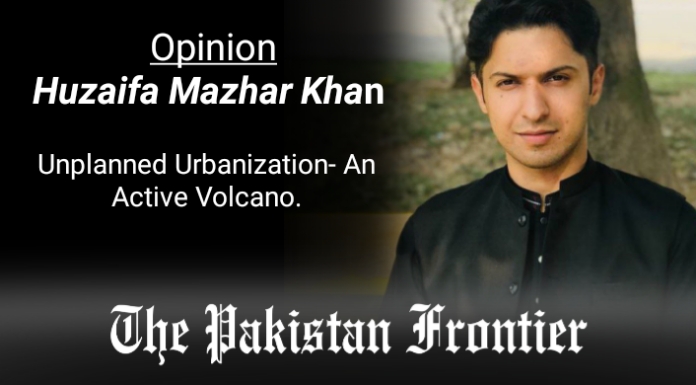Sapiens evolved to live as communities due to their interdependencies. What began as a group of individuals living in a cave thousands of years ago has now developed into vast metropolis areas with tens of millions of inhabitants. Since ancient times, we have been creating cities, and now it is more important than ever to do so. Because of swift urbanization we are facing multiple issues.
“Don’t allow overcrowding of the cities”, Dr. Muhammad Iqbal cautioned Italian ruler Benito Mussolini when he asked him for a wise council. “Keep a city’s population in check. When that number is achieved, create new cities and communities for them rather than allowing more people to move in.” Mussolini was perplexed and asked Iqbal to explain. Dr Iqbal elucidated that a city’s moral standards and economic might begin to deteriorate as its population grows. Even worse, immoral acts begin to undermine its cultural vitality.Allamah Iqbal further said, “This is not my personal opinion, but my Prophet Muhammad (peace be upon him) issued this valuable instruction thirteen hundred years ago that when the population of Madinah exceeds a certain limit, instead of allowing more people to settle, a new city should be established.” After listening to this advice, Mussolini stood up from his chair and exclaimed, “What a fantastic idea!”The aforementioned colloquy highlights the need for us to have new cities, which itself will play a significant role in grassroot development.
Although Dr. Iqbal was not a public policy manager, there is a valuable lesson in his advice that our stakeholders need to understand. Urbanization is not bad for an economy but when it comes to developing countries like Pakistan, unplanned and unregulated urbanization can have various grim consequences.
Take an example of the country’s capital, which was once known for its greenery and cleanliness. The feeling of harmony and inner peace was incomparable. Alas! Now Islamabad looks like a jungle of concrete. Islamabad faces humongous issues, yet governments make little to no attempt to overcome them. The city is unprepared to handle the issues brought up by the massive population growth. Islamabad became a safe haven for people as the security situation in other places deteriorated, adding to the strain on the capital. The city’s population has expanded by 100 percent during the past 20 years, according to official statistical data. As mentioned in the 2017 census, there are two million people living in Islamabad. As a result, problems including a water deficit, unemployment, and rising home prices occurred.Housing demand has sparked a surge in construction activities; however, this work is being done in a predicamental manner. Due to the unchecked building of housing complexes and roadways over large areas of land, Islamabad has seen conurbation. Little thought is being given to planning when doing this. Approximately, one hundred and fifty housing societies have been labelled illegal by the CDA (Capital Development Authority). This is just an example of Islamabad, the same and even worse is the case in other metropolitan cities. Thousands of unauthorized housing societies are proliferating on the outskirts of big cities. Unchecked real estate has turned into a safe haven for tax evaders. ‘File system’ has turned into a parallel currency which has swollen the size of the grey economy.Another important aspect which our policymakers often ignore is that people move to different cities in search of facilities. For instance, many people from South Punjab go to hospitals in Lahore because they are unable to get proper treatment from their towns. The condition of other provincial capitals is the same. Urban sprawl has numerous drawbacks and effects that include longer commute times, health risks, higher transportation costs, pollution and the loss of open space and agricultural lands. Perhaps we are a sui generis country where establishing housing societies on fertile land is allowed, despite the fact that we know that food security is another issue for us.
More than population control we need to focus on distribution of resources. In our country, we can clearly see that the bourgeoisie have more than ten dishes on their dining table, whereas the proletarians have to work an entire day just to get a loaf of bread for their family. The land reforms in the past have done little for the workers.To counter this problem of rapid urbanization we need a proper local government system (on which unfortunately, few have a political consensus). Economic progress, the provision of public services to citizens and the innovation of public services, depends on financially independent local governments that have control over income generation and utilization. Carefully thought-out national strategies and programs can maximize the advantages of expanding urbanization.Inter alia we need master plans for the overpopulated metropolitan cities. Lastly, we need new provinces or administrative units because the smaller the place, the easier it is to govern. This issue needs to be part of agenda setting; otherwise, the volcano of this unplanned urbanization will erupt the lava of new socio-economic issues.
